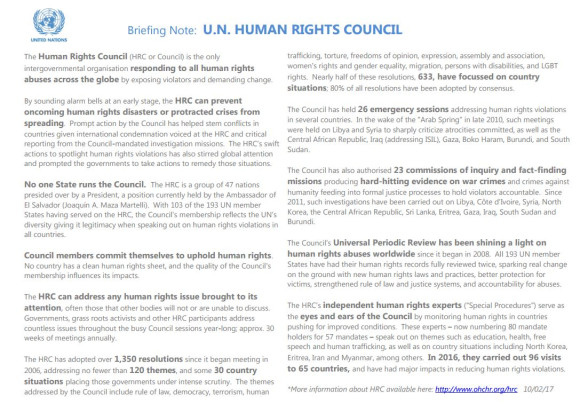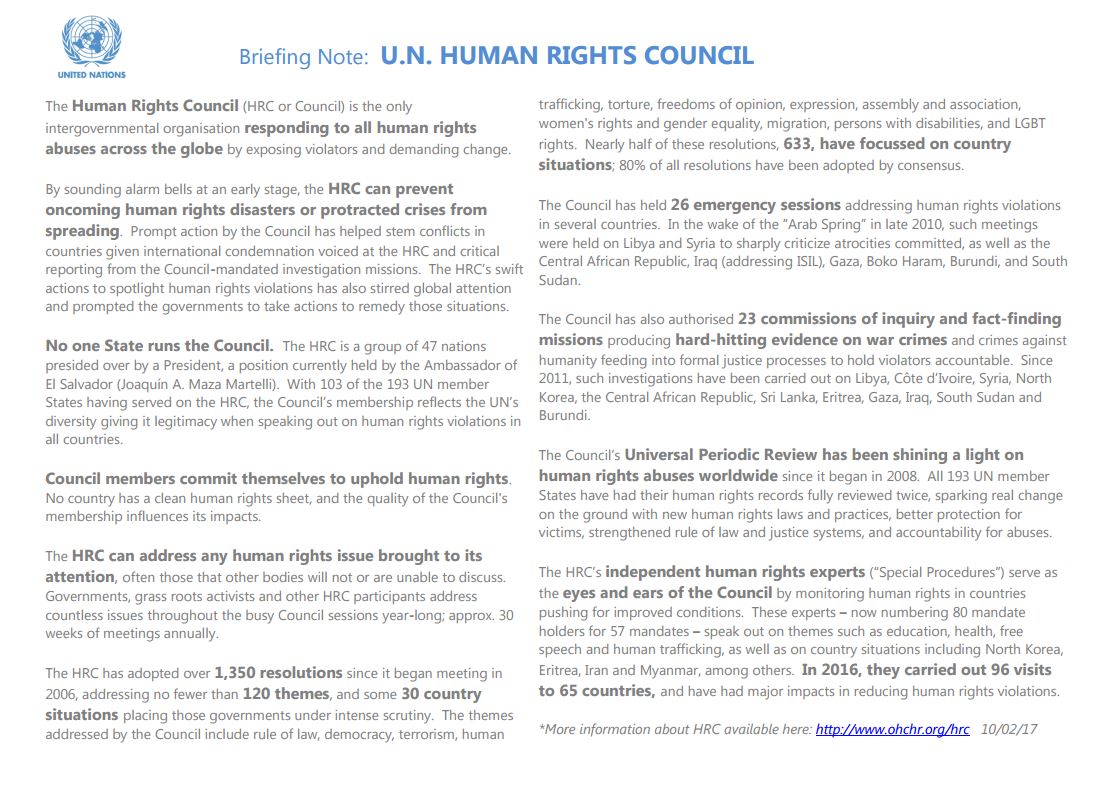 Mrs Phyllis Fehr, Board Member of the Dementia Alliance International (DAI) and Vice Chair of the Ontario Dementia Advisory Group (ODAG) presents in Geneva at the 17th Session of the CRPD Committee, March 20th, 2017.
Mrs Phyllis Fehr, Board Member of the Dementia Alliance International (DAI) and Vice Chair of the Ontario Dementia Advisory Group (ODAG) presents in Geneva at the 17th Session of the CRPD Committee, March 20th, 2017.
On March 17 2015, Kate Swaffer, co-founder and then co-chair of Dementia Alliance International placed human rights for all people with dementia on the global stage at the World Health Organisation First Ministerial Conference on Dementia in Geneva. Just over two years later, there have been many people with dementia working tirelessly globally to further this cause, in their local or regional communities, or at the national or global level. After this event, Professor Peter Mittler became DAI's Human Right Advisor and we and others living with dementia have been attending events and meetings in Geneva or New York many times now since that landmark day.
It is a very liberating time for all people with dementia as together we collectively pursue our human rights, and DAI is proud that Phyllis is representing us all in Geneva today. We have no doubt the Ontario Dementia Advisory Group (ODAG) are even more excited and very proud to have Phyllis Fehr there today, (Phyllis is ODAG Vice-Chair), as we collaboratively work together to ensure human rights are achieved for all, including people with dementia.
Here is the link if you wish to follow the event. Phyllis will give her 2 minute speech today, Monday, March 20th at the WHO in Geneva. http://www.unog.ch/unog/website/news_media.nsf/(httpNewsByYear_en)/427AC09275A960C4C12580E5003A283D?OpenDocument
PRESENTATION BY PHYLLIS FEHR, Board Member of Dementia Alliance International (DAI) at the 17th Session of the CRPD Committee, March 20th 2017
I am pleased to be here today on behalf of Dementia Alliance International, and also as Board Member of the Ontario Dementia Advisory Group.
Dementia Alliance International is a global organization run by and for people with dementia.
It’s an exciting time to be involved in the global movement to gain human rights for people with cognitive impairments.
Framing dementia as a disability is still very new, but it is being discussed as a policy direction and human rights issue.
When it comes to the United Nations Convention on the Rights of Persons with Disabilities, our goal is simply to ensure that people with cognitive impairments are treated like people with other disabilities.
Dementia Alliance International has been working to inform that debate and influence its direction.
We are making progress.
The World Health Authority, in its proposed Global Action Plan for a Public Health Approach to Dementia, has placed the human rights of people with dementia; empowerment and accountability as three of its seven cross-cutting principles. These reflect the core elements of CRPD and all other Human Rights Treaties deriving from the UN Universal Declaration of Human Rights in 1948.
Not only is progress being made at the global level, but also in my home country of Canada.
For the first time in Canadian history, a group of people with dementia, The Ontario Dementia Advisory group and our national Alzheimer’s organization have joined with a coalition of disability groups to speak with a common voice for the inclusion of people living with dementia in the implementation and monitoring of the CRPD.
This approach to human rights and the CRPD reflects the model being used at a global level by Dementia Alliance International and Alzheimer’s Disease International.
The Board of the Ontario Dementia Advisory Group, all of whom are DAI members, included access to CRPD as one of their recommendations in testimony before a committee of the Canadian Senate.
“The CRPD is important as it helps to spell out practical steps to ensure persons with dementia enjoy human rights on an equal basis with others.”
I am often asked how the CRPD will apply to the human rights of people dementia.
Let me give you an example - a medical diagnosis of dementia frequently results in the automatic loss of a driver’s license.
Is it not our fundamental right to have our ability to drive evaluated by an independent assessment of functioning?
That’s why people with dementia need full access to the CRPD.
The issue of human rights has been an interesting journey so far.
We still have lots of work to do.
People living with dementia are included in the broad definition of disability in Article 1 of the Convention, but have not been included in its implementation.
We need a seat at the table.
We also have to improve knowledge about why human rights are important to people with dementia and why they need to fight for their rights.
People with dementia need to think of the Convention on the Rights of Persons with Disabilities as a tool to enable them to access fundamental human rights to which they are currently excluded.
I am looking forward with great anticipation to this 17th session of the CRPD and the committee’s consideration of the initial reports submitted by Canada and other countries.
Dementia Alliance International welcomes the election of Robert Martin, a person with an intellectual disability as a member of the CRPD Committee.
Over the next 8 years, if not sooner, we would like to see a person with cognitive impairments* caused by dementia elected to the Committee".
Thank you for your attention.
Phyllis Fehr
* Please note, people with varying types of cognitive and other disabilities prefer the term 'cognitive disabilities'
The briefing note about the event is attached below:

